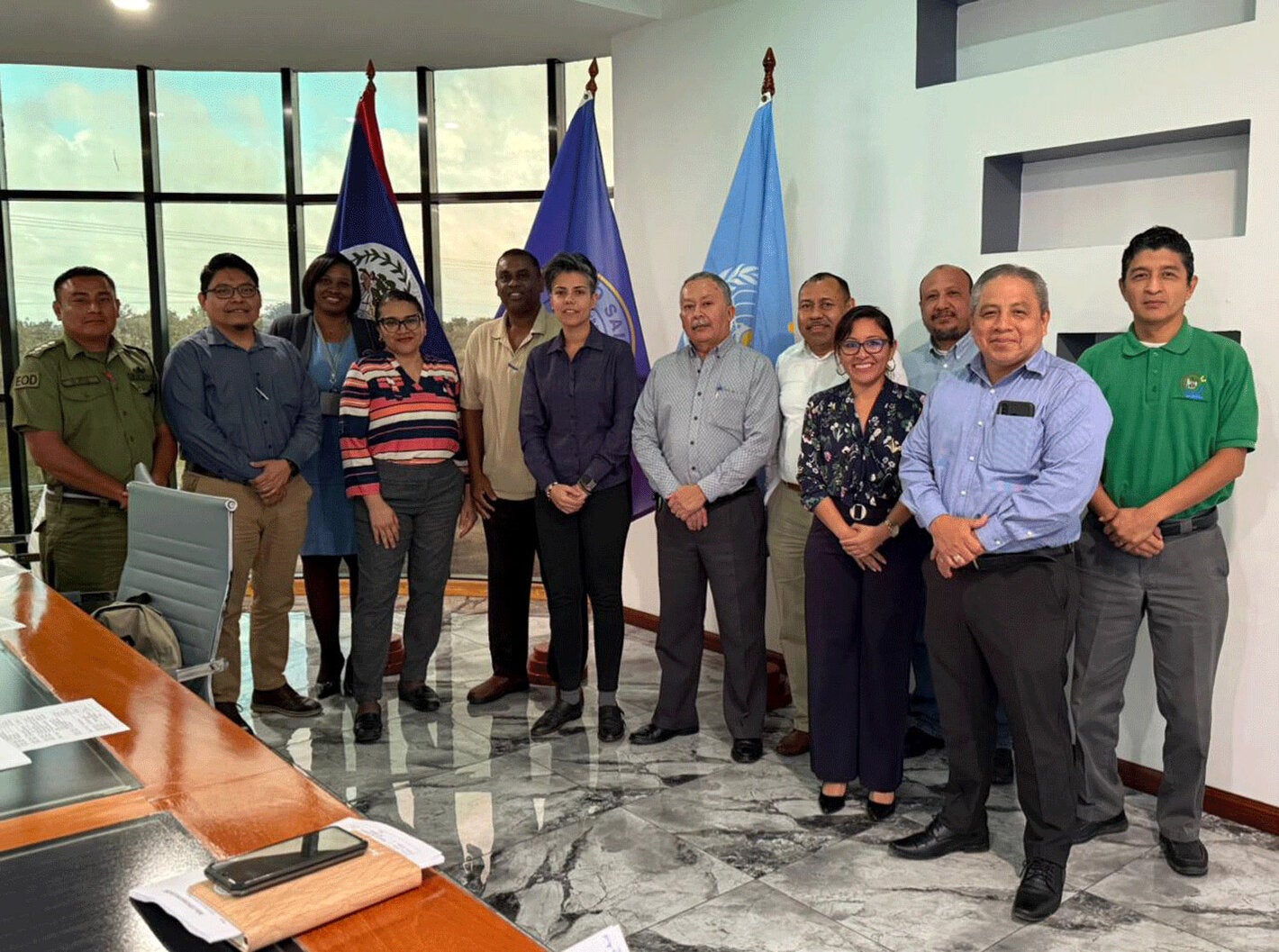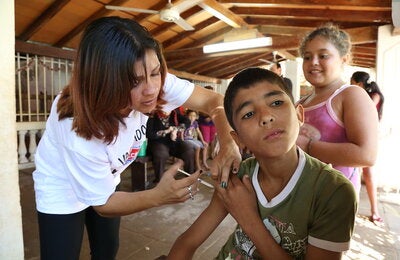
City of Belmopan, Belize, February 07, 2025 (PAHO) - By completing the 2024 States Parties Self-Assessment Annual Reporting Tool (e-SPAR) under the International Health Regulations (IHR, 2005), Belize has taken a significant step toward strengthening its health security and emergency preparedness.
With technical cooperation from the Pan American Health Organization/World Health Organization (PAHO/WHO) and in collaboration with the Ministry of Health and Wellness (MoHW), this multisectoral self-assessment enhanced Belize’s ability to prevent, detect, and respond to public health threats, including those at points of entry.
“The IHR framework and the e-SPAR annual self-assessment are vital elements for ensuring that countries like Belize can manage and mitigate health risks effectively,” said Dr. Ana De La Garza, PAHO/WHO Technical Advisor for Communicable Diseases Prevention, Control and Elimination in Belize. “This workshop plays a key role in developing a comprehensive national action plan that contributes to Belize’s health security and broader global health.” Belize utilized the e-SPAR tool to assess its capacities, identify gaps in the health system, and implement targeted improvements for more effective emergency management.
Additionally, the process ensured compliance with IHR Article 54 by enabling State Parties to report annually to the World Health Assembly on their progress in meeting capacity requirements under these Regulations. It also promoted transparency and mutual accountability among States Parties, reinforcing global public health security under the WHO IHR Monitoring and Evaluation Framework.
“It is essential that Belize assesses its capacity to detect early and respond in a timely manner to any public health emergency,” said Dr. Jorge Polanco, Director of Hospital Services and Allied Health of the MoHW. “The SPAR instrument assesses 15 core capacities, with the national response relying not only on the Ministry of Health and Wellness but also on other government departments. This mandatory assessment is expected to provide key insights into developing a work plan to be implemented by the stakeholders responsible for IHR compliance. It has been agreed that the group will reconvene in six months to review progress and assess the fulfillment of commitments.”
The workshop adopted the One Health framework by bringing together stakeholders from the health, agriculture, environment, and security sectors, recognizing the interconnectedness of human, animal, and environmental health in building public resilience. The team included PAHO/WHO Regional Advisor for IHR – Dr. Tamara Mancero (virtually), MoHW representatives, and representatives from the Belize Department of Civil Aviation and the Belize Defence Force, conducted a comprehensive review of essential areas such as disease surveillance, laboratory systems, risk communication, emergency response, and cross-border collaboration.
This exercise underscored Belize’s commitment to strengthening its health security system and affirmed its dedication to evidence-based decision-making and continuous improvement in global health security.



